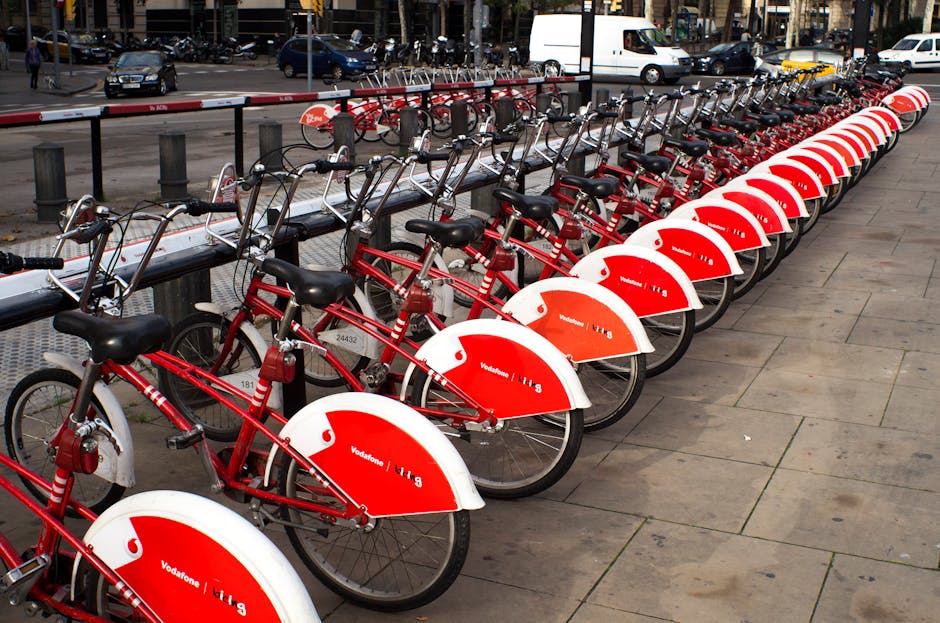Spain’s Airbnb Crackdown: Navigating the New Rules for Hosts and Guests
Spain, a popular destination for tourists worldwide, has been cracking down on illegal short-term rentals, particularly those listed on platforms like Airbnb. This crackdown, driven by concerns over housing affordability, tourism management, and regulatory compliance, has significantly impacted both hosts and guests. This comprehensive guide unravels the complexities of the new regulations, providing crucial information for anyone considering renting or listing a property in Spain.

The Driving Forces Behind the Crackdown
Several factors have contributed to Spain’s intensified focus on regulating short-term rentals. Firstly, the soaring popularity of platforms like Airbnb has led to a dramatic increase in the number of properties available for short-term rentals, often outpacing the availability of long-term rental housing. This surge has pushed up housing prices in popular tourist areas, making it challenging for residents to find affordable accommodation.
Secondly, concerns about the impact on local communities are growing. The influx of tourists associated with short-term rentals can strain local infrastructure, disrupt the peace and quiet of residential areas, and alter the character of neighborhoods. Overtourism is a major concern in many Spanish cities and towns, and the unregulated proliferation of Airbnb rentals is seen as a contributing factor.
Finally, tax evasion is a significant issue. Many short-term rental hosts operate without registering their properties with the appropriate authorities or paying the necessary taxes, depriving local governments of essential revenue.

Key Regulatory Changes Affecting Airbnb Rentals in Spain
The regulations surrounding Airbnb rentals vary across Spain’s different regions (autonomous communities). However, several common themes emerge. Many regions now require short-term rental hosts to obtain a tourist license, register their properties with local authorities, and comply with specific regulations regarding noise levels, waste disposal, and guest safety.
Licensing Requirements:
Obtaining a tourist license is often a crucial first step. The specific requirements vary by region, but generally involve demonstrating that the property meets certain standards of safety, hygiene, and accessibility. The application process can be lengthy and complex, requiring extensive documentation and inspections.
Registration and Compliance:
Once licensed, hosts must register their property with the relevant local authority. This registration often involves providing detailed information about the property, including its address, capacity, and amenities. Ongoing compliance involves adhering to local regulations, including paying taxes and providing accurate information to guests.
Tax Implications:
Hosts are required to pay taxes on their rental income, with the specifics again varying by region. Failure to comply with tax regulations can result in significant penalties. Understanding the local tax laws and accurately reporting income is crucial for avoiding legal issues.
Noise and Disturbance Regulations:
Many regions impose restrictions on noise levels and disturbances associated with short-term rentals. Hosts may be required to enforce quiet hours and address any complaints from neighbors promptly. Failure to do so could result in fines or even the revocation of their license.
Impact on Hosts
The crackdown has created challenges for Airbnb hosts in Spain. The licensing and registration process can be demanding, requiring significant time and effort. Many hosts are facing increased compliance costs, including fees, taxes, and the potential need for property improvements to meet regulatory standards. Some hosts have chosen to remove their listings altogether, rather than navigate the complexities of the new regulations.
For those hosts who remain, adapting to the new regulations requires proactive engagement with local authorities. Understanding the specific rules in their area is crucial, and seeking professional advice from legal or tax experts can be highly beneficial.
Impact on Guests
Guests also face consequences of the crackdown. The reduced availability of unlicensed short-term rentals may mean fewer options for accommodation, especially in popular tourist areas. Guests should verify that their chosen Airbnb rental complies with local regulations, to avoid potential issues such as being evicted or encountering problems with local authorities.

It’s crucial for guests to check for the presence of a tourist license or registration number when booking. This will help ensure they are renting a legally operating property and reduce the risk of encountering problems during their stay.
Tips for Navigating the New Regulations
- Research local regulations thoroughly: Understand the specific requirements for short-term rentals in the region where you plan to rent or list a property.
- Obtain necessary licenses and registrations: Ensure you comply with all legal requirements before listing or renting your property.
- Comply with tax regulations: Accurately report your rental income and pay the appropriate taxes.
- Address neighbor concerns promptly: Be mindful of noise levels and other potential disturbances to avoid conflicts with residents.
- Seek professional advice: Consult legal and tax experts if you need assistance with navigating the complexities of the regulations.
- Verify compliance when booking: Guests should always check if their chosen Airbnb rental has the necessary licenses and registrations before booking.
The Future of Airbnb in Spain
The Spanish government’s crackdown on illegal short-term rentals is likely to continue. The aim is to create a more sustainable and regulated tourism sector that benefits both tourists and local communities. The long-term impact on Airbnb and similar platforms remains to be seen, but it’s clear that hosts and guests will need to adapt to the changing regulatory landscape.
This shift towards stricter regulations underscores the importance of responsible tourism and the need for a balance between the economic benefits of short-term rentals and the well-being of local communities. By complying with the rules and regulations, hosts and guests can contribute to a more sustainable and enjoyable tourism experience in Spain.

